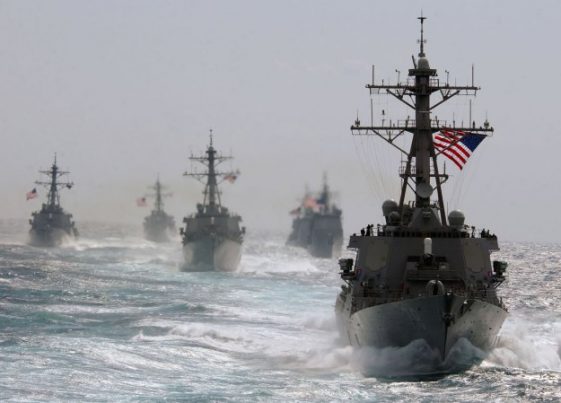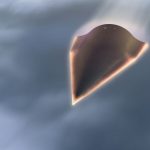
U.S. Navy will increase ‘freedom of navigation’ patrols in South China Sea despite Chinese militarization
Tuesday, March 01, 2016 by usafeaturesmedia
http://www.nationalsecurity.news/2016-03-01-u-s-navy-will-increase-freedom-of-navigation-patrols-in-south-china-sea-despite-chinese-militarization

(NationalSecurity.news) The U.S. Navy plans to bolster its “freedom of navigation” patrols in the South China Sea near reclaimed and man-made islands under the control of China, even as Beijing has deployed sophisticated air-defense missiles, long-range radar and fighter jets to some of those islands.
“We will be doing them more, and we’ll be doing them with greater complexity in the future and … we’ll fly, sail and operate wherever international law allows,” Adm. Harry Harris, head of the U.S. Navy’s Pacific Command, told a hearing of the House of Representatives Armed Services Committee last week.
“We must continue to operate in the South China Sea to demonstrate that water space and the air above it is international,” Harris added.
As reported by Reuters, Harris’ comments coincided with a visit to Washington, D.C., by Chinese Foreign Minister Wang Yi, in which the admiral also said Beijing was “changing the operational landscape” in the South China Sea through militarization of the region, something the Chinese government has pledged not to do.
China has countered that its deployments of military weaponry is “legal and appropriate.” In an apparent reference to U.S. patrols, Wang said last week that his government hoped not to see more close-up reconnaissance or the presence of guided-missile destroyers and strategic bombers.
While in town, Wang met with U.S. National Security Advisor Susan Rice, in which they “candidly discussed” maritime issues in the South China Sea, according to a statement issued by the White House. The administration said that Rice emphasized strong U.S. support for freedom of navigation and pushed China to be mindful of regional security concerns, Reuters reported, citing the statement.
Lawmakers asked Harris what he thought ought to be done to deter future Chinese militarization. He said the U.S. might consider deploying more naval assets, though there were significant “fiscal, diplomatic and political hurdles” regarding the stationing of a second aircraft carrier group in the area.
“We could consider putting another (attack) submarine out there, we could put additional destroyers forward …there are a lot of things we could do, short of putting a full carrier strike group in the Western Pacific,” he said.
The problem is that China claims most of the South China Sea, and far more than the internationally recognized 200-mile economic exclusion zone around its shores. More than $5 trillion in trade passes through the region each year, and several other countries – Vietnam, Malaysia, the Philippines, Taiwan and Brunei – have rival claims.
In recent months the U.S. has conducted freedom of navigation patrols in the region, coming to within 12 nautical miles of some of China’s reclaimed islands. Also strategic bombers have transited the skies over the South China Sea, and Navy surveillance and intelligence planes have also overflown some of the islands.
See also:
NationalSecurity.news is part of the USA Features Media network of sites.
Tagged Under: Tags: China, navigation, South China Sea, U.S. Navy






